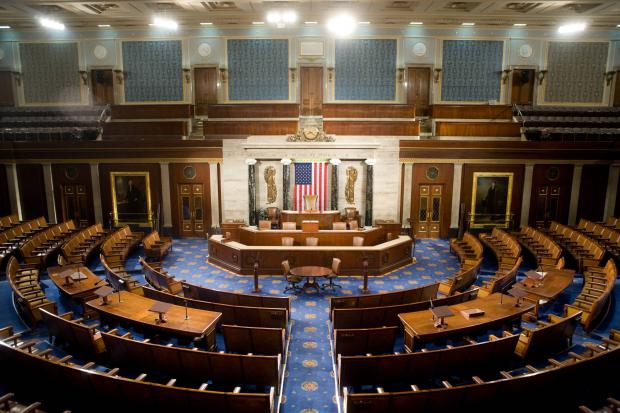
Breaking News
 BREAKING: Federal Agents Descend on Suspected Somali Fraud Sites in Minneapolis (VIDEO)
BREAKING: Federal Agents Descend on Suspected Somali Fraud Sites in Minneapolis (VIDEO)
 BREAKING: Federal Agents Descend on Suspected Somali Fraud Sites in Minneapolis (VIDEO)
BREAKING: Federal Agents Descend on Suspected Somali Fraud Sites in Minneapolis (VIDEO)
 Aargh! Letters of marque would unleash Blackbeard on the cartels
Aargh! Letters of marque would unleash Blackbeard on the cartels
 How a Barter System Could Sustain Communities During a Supply Chain Collapse
How a Barter System Could Sustain Communities During a Supply Chain Collapse
Top Tech News
 EngineAI T800: Born to Disrupt! #EngineAI #robotics #newtechnology #newproduct
EngineAI T800: Born to Disrupt! #EngineAI #robotics #newtechnology #newproduct
 This Silicon Anode Breakthrough Could Mark A Turning Point For EV Batteries [Update]
This Silicon Anode Breakthrough Could Mark A Turning Point For EV Batteries [Update]
 Travel gadget promises to dry and iron your clothes – totally hands-free
Travel gadget promises to dry and iron your clothes – totally hands-free
 Perfect Aircrete, Kitchen Ingredients.
Perfect Aircrete, Kitchen Ingredients.
 Futuristic pixel-raising display lets you feel what's onscreen
Futuristic pixel-raising display lets you feel what's onscreen
 Cutting-Edge Facility Generates Pure Water and Hydrogen Fuel from Seawater for Mere Pennies
Cutting-Edge Facility Generates Pure Water and Hydrogen Fuel from Seawater for Mere Pennies
 This tiny dev board is packed with features for ambitious makers
This tiny dev board is packed with features for ambitious makers
 Scientists Discover Gel to Regrow Tooth Enamel
Scientists Discover Gel to Regrow Tooth Enamel
 Vitamin C and Dandelion Root Killing Cancer Cells -- as Former CDC Director Calls for COVID-19...
Vitamin C and Dandelion Root Killing Cancer Cells -- as Former CDC Director Calls for COVID-19...
 Galactic Brain: US firm plans space-based data centers, power grid to challenge China
Galactic Brain: US firm plans space-based data centers, power grid to challenge China
House of Representatives Approves Legislation Threatening Nonprofits' Free Speech

On Thursday, the United States House of Representatives approved legislation that would threaten nonprofit organizations' exercise of free speech rights. The legislation would accomplish this goal by empowering the US government to selectively clamp down on nonprofits to an extent that targeted organizations may cease to exist. This is all being done in the name of countering terrorism, a trusty standby excuse for the US government exercising authoritarian powers.
The House approved the Stop Terror-Financing and Tax Penalties on American Hostages Act (HR 9495) by a vote of 219 to 184. The "yes" votes came mainly from Republican members, and all the "no" votes were from Democrats plus Kentucky Republican Thomas Massie, an Advisory Board member for the Ron Paul Institute.
J.D. Tuccille provided an informative critique of HR 9495 in a Friday Reason article. The bill, explained Tuccille, "allows for the 'termination of tax-exempt status of terrorist supporting organizations.'" Continuing, Tuccille wrote:
The designation of organizations as such is left to the discretion of the Secretary of the Treasury, based on that official's judgment that a non-profit group has, in the last three years, provided 'material support or resources' to what the U.S. government considers a terrorist organization. The language provides for a 90-day window during which time supposed 'terrorist supporting organizations' can appeal the designation, but the burden is on them to prove that they're not guilty.
This turns due process on its head.
The threat from this new bureaucratic power is extreme for targeted organizations. As Tuccille puts it in his article, the loss of "tax -exempt status" is essentially a death penalty for most non-profit organizations."
What a censorship power this legislation hands over to the executive branch bureaucracy. Nonprofit organizations whose activities challenge the ambitions of the US government and connected individuals, businesses, and organizations, can be snuffed out. Meanwhile, other organizations will have a big incentive to limit their own speech to avoid being similarly targeted for destruction.



